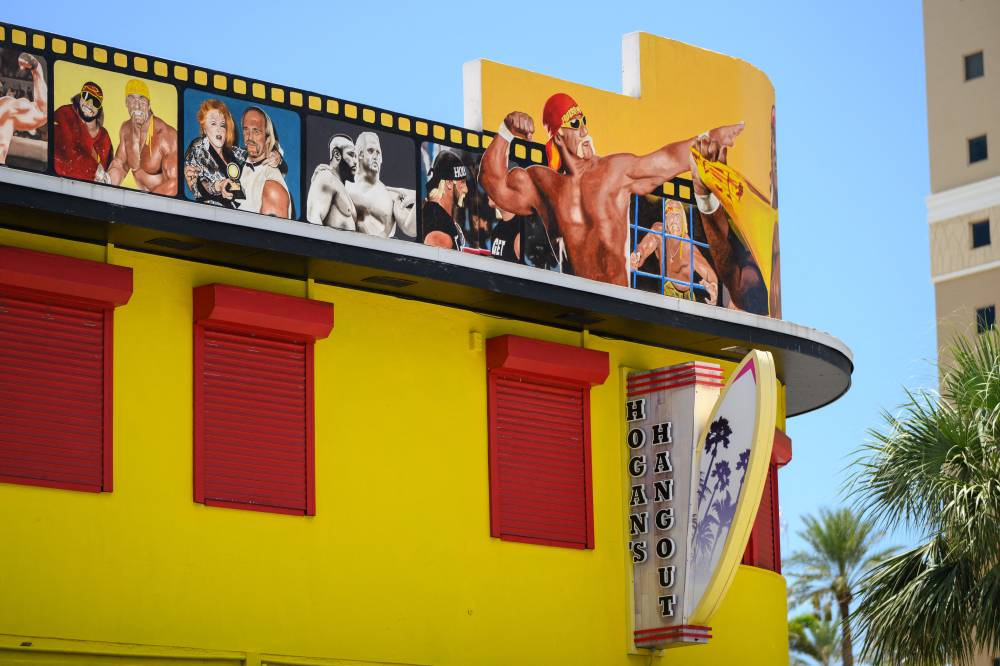Hulk Hogan, the immortal (and infamous) stuff of legend

A little over a week ago, as the clock struck midnight on a Friday in July, Hulk Hogan (Terry Gene Bollea) was reported dead.
TMZ broke the news, saying that the legendary 71-year-old pro wrestler suffered a cardiac arrest in his home in Clearwater, Florida. This was around a month after initial rumors spread by former associate, radio personality Bubba the Love Sponge, claimed that he was on “his deathbed.” It turned out he was just in the hospital for neck and back surgery at that time. The world just didn’t realize that nature would come to claim him sooner than we’d thought.
The reactions were swift—and predictable. A good majority of professional wrestling fans quickly mourned Hogan’s untimely passing, caught off guard by a man who many thought would live much longer than he did. These fans were seemingly oblivious to the reason why the other half of the fandom was celebrating, if not at least smug about the incident.
Because in real life, Hogan was very little like the perennial do-gooder that he portrayed in his prime.
The most iconic pro wrestler in the world
First, the resume on paper.
If you are at least aware of pop culture of the past 40 years, you probably already know—or at least have some idea—of why Hulk Hogan is an undying name. He was a wrestling superhero marketed to the kids of the ’80s and the early ‘90s, helping the then-WWF (and with it, the pro wrestling industry) achieve pop culture-phenomenon status.
It was off the back of Hogan’s adventures and stories that wrestling became a thing that both kids and adults all over the world started tuning into. Hogan and the WrestleMania annual event would merge the worlds of wrestling and rock and roll—two major forces of the time—catapulting the admittedly shady sports pantomime into public awareness.
Many would profess Hogan to be the inspiration in their childhood. Some current pro wrestlers even name him as the reason why they got in the fandom and, eventually, into the business.
The truth is, pro wrestling’s enduring relevance today—while no longer the same as it was in the ‘80s and ‘90s—is really due in large part to Hogan’s popularity and work. It’s not to say that the industry would have died if what we call Hulkamania didn’t happen; it’s more of the whole business would have taken longer to catch fire at best, and a wildly different turn at worst.
The real-life human being outside the ring
If there’s something you must know about pro wrestling, it’s that much like the world of Hollywood, personalities are often just personalities for the screen. Unfortunately, the human beings behind them can be much worse.
Hogan very early on proved that he wasn’t really the best guy, despite what his onscreen persona would have millions believe. His first scandal was the bootlicking of WWF chairman and promoter Vince McMahon into busting a union that fellow wrestling legend Jesse “The Body” Ventura was planning to form among the wrestlers in their locker room. This prevented what would have been much-needed benefits for performers who once had very little protection and stability if they weren’t big stars.
But, okay. That one isn’t as resonant with the wrestling fans. What do they care if wrestlers don’t get a union? That doesn’t necessarily affect their viewing experience—at least, not in the short-term.
No, the most infamous scandal Hogan would ever figure in would be that of his leaked sex tapes, in which the most controversial thing wouldn’t be him doing the act—but of him explicitly and clearly disapproving of his daughter Brooke dating black men, calling them the dreaded “n-word” with the hard R, making it extra racist. For this, he was both shamed publicly by everyone who had heard the news, and privately, by the employees of WWE, where he gave a half-hearted apology that was said to talk about being caught instead of being genuinely contrite about being racist.
That scandal would be the one that did him in among the Black community, and the major issue that many non-Black people (both white and Asian) are fine overlooking.
But then there’s Hogan developing the reputation of being a pathological liar—displaying a penchant for making ridiculous claims in attempts to make him seem more impressive than he really was. By the end, Hogan also came out publicly as a Donald Trump supporter, lending his persona to the 2024 campaign, and further alienating more fans.
Wrestling with a larger-than-life legacy
Here’s the thing about Hogan (and his legacy) that both admirers and haters can’t seem to fully grasp: the sum of it doesn’t erase either the good or the bad parts.
Lifelong fans would love to tell you that he apologized once, and that should be enough for the whole world, especially Black critics, to move on. Never mind that I’ve seen him be genuinely unable to show any real remorse for his actions and do the work to really make it up to the community.
In the same vein, the haters refuse to give up ground and acknowledge the very real impact of his work in the business. Some say Hogan’s legacy is not complicated at all: he was a racist bootlicker, and that takes precedence over every good (and “good”) thing that he’s done for the legions of wrestling fans. It’s easy for non-wrestling fans to be dismissive of what the industry is today because they have no skin in this game.
But to be a real fan and to indiscriminately erase Hogan and his lasting influence is also to disrespect history.
The truth is all feelings about Hogan are valid, because his life and work were not some one-dimensional body. For better or for worse, his legacy is what each of us make of it. More than anything, it is personal. We all write our own histories of the man.
In the end, no matter how terrible it could get, nobody can really tell you how to feel about what you have experienced of Hulk Hogan, especially if the superhero left an indelible mark on your childhood.
And while some can easily discard a favorite who has wronged them, not everyone can move on that fast, either. I also fully believe in not judging those who are still coming to grips with someone so prominent and so flawed. That’s what makes it all complicated, after all.
For now, may we all listen and understand our fellow man—and go through our lives to finally find a hero that is truly heroic.
















